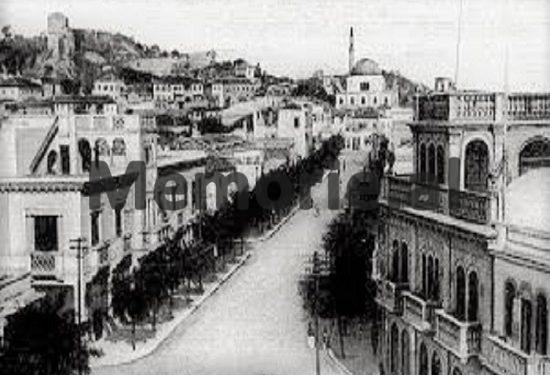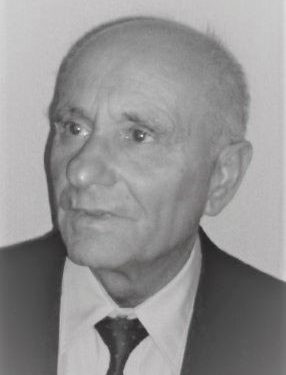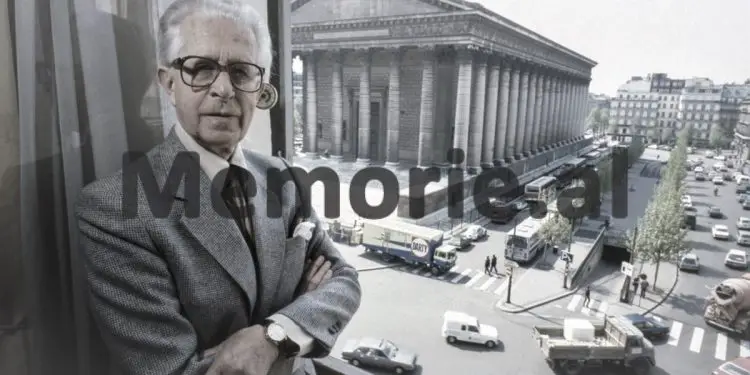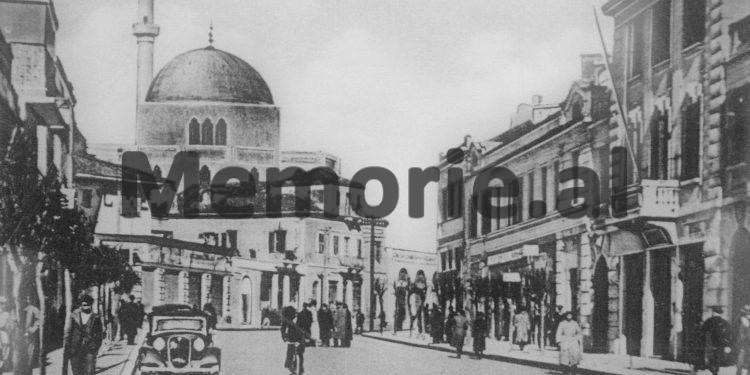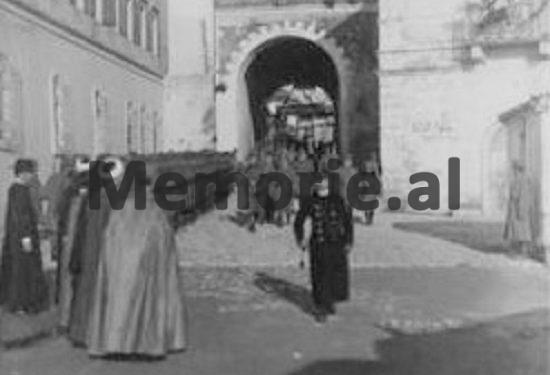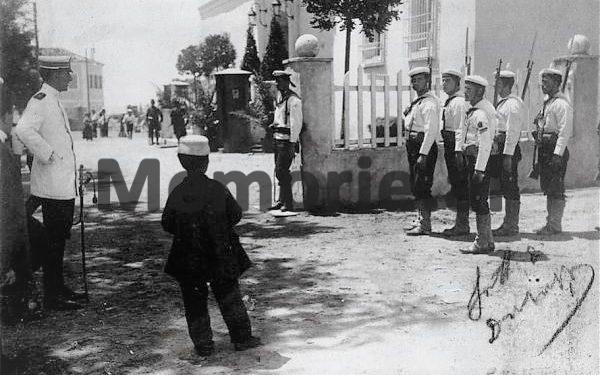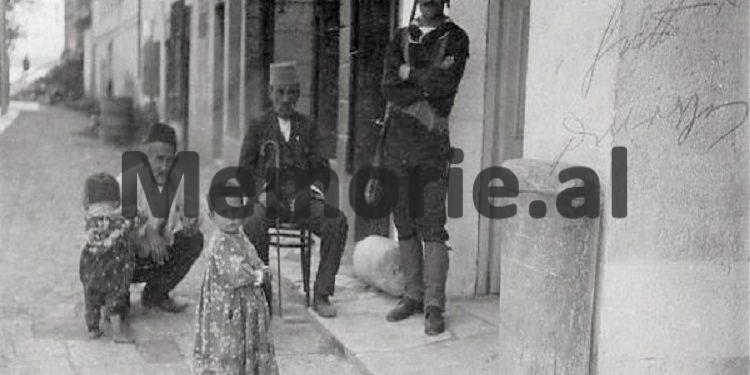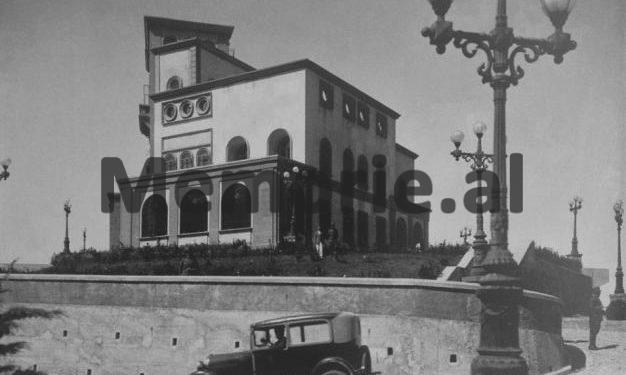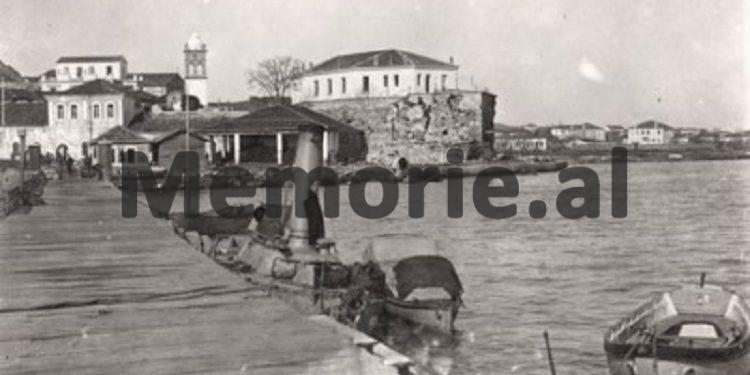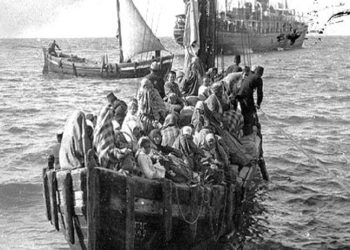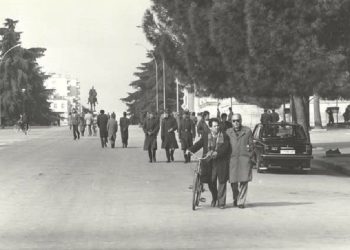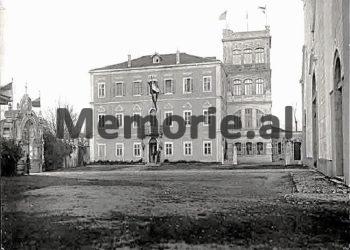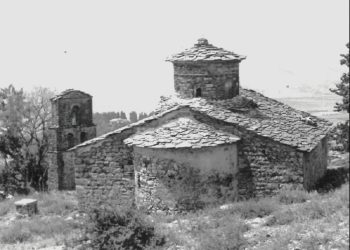By Sven Aurén
Translated by Adil N. Bicaku
ORIENTI EUROPE
AT THE PORT OF THE STRANGERS
Land of Albania! Let me bend my eyes
On thee, thou rugged nurse of savage men.
Lord Byron.
Memorie.al/In the book “Orient of Europe”, the author of the work is the Swede Sven Aurén. They are impressions of traveling from Albania from the ‘30s. His direct experiences, without any retouching.
In a word, the translation of the book will bring to the Albanian reader, the original value of knowing that story that we have not known and we continue to know it, and now distorted by the interests of the moment.
Now a little about what these lines address to you: My name is Adil Bicaku. I have worked and lived for over 50 years in Sweden, without detaching for a moment, the thought and feeling from our Albania.
I am now retired and living with my wife and children, here in Stockholm. Having been for a long time, from the evolution of the Albanian language, which naturally happened during these decades, I am aware of the difficulties, not small, that I will face, to give the Albanian reader, the experiences of the original.
Therefore, I would be very grateful if we could find a practical way of cooperation together, to translate this book with many different values.
Morally, I would feel very relieved, paying off part of the debt that all of us Albanians owe to our Albania, especially in these times that continue to be so turbulent.
With much respect
Adil Biçaku
Albania is an insignificant mountainous country, located somewhere in the Balkans in Southern Europe. It is inhabited by a number of tribes, unfortunately mentioned for their harsh, primitive mountain character. They live only by plunder. They attack quiet travelers, who snatch them to the teeth of gold and leave them naked on a mountain pass, without protection from victims of wolves and bears.
For fun, they shoot at birds, which are in abundance, so the old robbers use huts with such skill, which is known and proven in the Balkans. During the dark nights, flames boil from the tops of the mountains. Men twist their long mustaches and tell about their deeds, so that lies come out of them like blue flame from their mouths. Women with squinted eyes, listen with admiration.
The country has a significant export of blackmail papers. The common chief of the tribes is called Zogu, an agile man, former shepherd, who has made a quick, diligent career in occupying wells, in the most trafficked mountain passes. Names of cities and geographical locations cannot be determined.
You laugh? But when I am at the moment looking at the answer to the Albanian survey, which I filled out before the trip from Stockholm, among friends and acquaintances, the exaggerations seem small to me.
I asked people from different trades and interests. Albania was “that country thieves somewhere, who knows well where”. Albania was something gloomy, dubious, and unimportant. There were no set boundaries, no organization, and no function. There was certainly a trace of kvassirromantic crime and almost no beacon of interest. Alongside John Bull and Daj Samit, this unrecognized nation looked like an old-fashioned Moroccan bandit.
I’m lying in bed and thinking about that survey. The steam engine has stopped. I hear the sound of cranes and the sound of feet on the Durrës pier. But when I get up and open the window curtain, I see only a calm blue view of the Adriatic. My cabin is not on the pier side.
Opens the door. The voice of the person in charge.
-Come on, sir. An hour ahead of time! The cabin door closes again. That kind of tone is very special “an hour ago”, which reminds you that the Bari-Durrës connection is made by an Italian steamer, whose captain knows what Mussolini wants from the boys of New Italy.
I am now on the shore of the land of robbers. Will they greet me with assault and rifle shots, in the traditional style? The heart of an old journalist cannot avoid and withstand possible vibrations, before this opportunity. Or it will be shown to be deeply Europeanized, like half men with cylindrical hats, frozen collars and leggings.
***
I have never climbed stairs ever, so fast forward. With the collar in one hand and the collar in the other, I crawl up the stairs and out onto the deck – on the wrong side. I still have only a monotonous blue sea, in front of me. But when I rush to the tobacco parlor to get out, on the opposite side of the boat, I stand stunned.
Opposite me, on the other side of the room, in the frame of the narrow open door, I see the painting of Albanian nature, unimaginable, stunning. I see four rows of bare, with different shades of gray. At the bottom of the panorama, stubborn rocks with messy and gray-walled formations, mountains of robbers and adventurers, wilder and more romantic, than I ever could have ever dreamed of.
And two soft slopes of pale gray, further two long lines, in a light shade, which I cannot distinguish, where they coincide with the blue horizon, a giant mass of Alps, where their peaks shine from snow. I do not see greenery, or houses. This is just a picture of mountains. I almost stand and wait for the controller to enter, through this wonderful open stage, to the tobacco parlor and with a magnificent thief hat and cross-legged, to recite some verses by Rinaldo Rinaldini.
When I go through the cable frame, I get out on the deck of the ship, the horizon of vision opens. It is not just a mountain.
Below me lies the city of Durrës, with simple two-storey houses, with a host of primitive roofs. On the other side of town is a small mosque, with a spear-like minaret, which was ashamed to point its index finger, towards the calling sky, at the edge of the Western world.
On the right, the seaside promenade passes a beautiful endless beach, White Sea sand, a dead beach, no hotels, no cabins, and no beachgoers. On the left side of town, houses are barely climbed halfway up that big shore. There is only one, which is climbed to the top of the hill, one as a palace or as a cottage, in red tile paint. Wonderful terraces surround the building. At the top of the walls, pompous candlesticks are seen.
This is a private residence, then neat with a fairytale landscape, facing the mountains, the snow of the Alps, over the Adriatic Sea, from where he can watch the voyages of steamers, to the Near East and the Orient. He also has a house, to be proud of, a castle on the border between East and West. An ideal dwelling, for a rich hermit…!
Someone touches me with my elbow when I stand on the boat ledge. It’s that little Italian journalist that I laugh forced to talk to, a full hour with him, after we left Bari, yesterday evening. He is an ardent fascist, but instead of having a fascist mark, he has a large, disgusting mark on the collar of his jacket, and by doing so, he thinks it is an inevitable obligation, to present the Italian people as the culmination of civilization and Albania, as a barbaric, incorrigible state. (“But with the help of Il Duce, we will succeed in making Albanians people too.”)
-He is the King’s summer palace, there on the top of the hill, he tells me with pleasure. It’s actually called the palace, he adds with an ironic laugh. The notion and expression in this country do not have the same content as in Sweden and Italy. You understand, sir, a tourist in Albania, must lower the standard of living, quite a few degrees. You have this really clear I believe you, I believe? First of all, I hope you can explain this to your lady. I pointed it out yesterday at dinner…!
-Signor, I answer irritated, clearly that I have not forgotten what you told me yesterday at dinner. I know that Albania is a primitive country, which does not offer anything in the interest of a foreigner and no feeling that we, the western civilization, see as right or wrong.
I know that the Albanian is backward, lazy and treacherous. I know, that I should never have come here, but that I with the stubbornness of the fool for this purpose, at least had left the lady at home. I know, you signor, in your rank, you never wanted to take the lady with you here. I also know that only thanks to Italy, that Albania can exist as an independent nation name and Albania can never reward the grateful obligation to the brother state, on the other side of the Adriatic…!
The Italian editor felt offended because he saw with frowning eyes.
-You seem to have not understood anything at all, what I said, he says offended.
-But accept at least, the fascination in this alpine landscape!
We gaze upon the gray mountain ranges. The view is magnetic. Clouds have lowered slightly and are discovered, new peaks and proud ridge formations. This is a rough terrain, but it is nature, miracles, untouched nature. I believe that the old Pekili * (Pequevilli), who called Albania, for the Switzerland of the Balkans and with that consideration, that famous traveler, gave Albania a compliment. But in fact, this was no compliment. This nature has nothing to do with the beauties, as in the postcards of Switzerland, of this idyllic contrast, between the peaks of the Alps, like sugar balls and intense greenery, with pleasant houses, like dolls. Here everything is virgin.
Our eyes meet again. Not even the slightest appreciation is seen in the eyes of the Italian.
-Signor, he says in a low and informative tone, if we were in Corfu, located opposite the southern edge of Albania, we would have the same panorama, in front of our eyes. Do you know what Bethmann-Hollwegu said to Wilhelm II, when the two gentlemen from the Kaiser’s residence in Corfu, when they were looking at the mountains of Albania together? “I would not take this place even if I was forgiven,” he said. No way! I say the same.
He greets and walks across the deck, which from now on – I see this in his proud posture – is no longer a ship deck but his private triumphant line.
When I stand there, a little bored, my wife comes upstairs on the deck and we go out on the ground. Beneath the platform of the ship, there were a considerable number of representatives of the Albanian people: a group of men, with torn jackets and wide scarves, all with helmets on their heads and all with a deafening voice, sunburned, boys handsome, who wanted to transport us to the capital. Tirana lies inland, thirty kilometers from the coast and to get there, you have to take a bus or taxi.
They gesture loudly and show their cars. A strange contrast reigns, between the drivers and their vehicles. The combination of east-west dress, of the gentlemen driver, is a misery. Cars surprise you with their elegance. There is also a ‘Kadillak’ in the shape of a goulash. They ask for different prices, for Tirana, but even the highest prices are at a low and modest level. Italian civilization, apparently, has not succeeded at this point. The Albanian driver continues to maintain a sense of correctness.
Through this race of drivers, another representative of the Albanian people, the tall, handsome gentleman, with a kind of sailor uniform and with a lot of embroidery on the sleeves, paves the way. He comes to us, honors and introduces himself, the captain of Durrës.
“I just checked my passports,” he says, drawing my attention to the fact that a Swedish couple did my country this honor. I do not know much about Sweden, but I do know that it is a very developed and respected nation. I have been captain here for many years, but so far only a few Swedes have landed at this port. So for me it is something special, when Swedish visitors come and I take this opportunity and apologize to them for this intervention. Hence, please…!
The drivers closed their mouths when this important gentleman came. The Port Captain walks in front of us and sees clearly why we are following him. After a few minutes of quiet walk, we enter a hut, where a desk and three wooden chairs make up its Spartan furnishings.
-My office!
As we sit in the wooden chairs and the cavalier, the Captain of the Port claps his hands, after a while an black individual with a white fez, appeared at the open door. He hears a few words in an incomprehensible language and disappears, only to reappear after a few minutes, this time with a brass tray, in which there are three small cups of coffee.
– The tradition of the country, explains the master of the house.
Everyone grabs the cup and we look like in Swedish ceremonies when we raise the glasses of brandy.
– Welcome to Albania! Says the captain.
This is Turkish coffee, which invites us. Or rather, this is Albanian coffee. It is similar to the turkey, which is baked with sugar and served without cream or milk, but is not as sweet and not as strong. It has a great aroma at all. Then a lively conversation begins. The captain speaks a wonderful French and will know, a thousand facts, about our visit, our plans, the political situation in Central Europe, if we have children and if we plan to stay in Durres, or we will leave directly for Tirana .
– Directly to Tirana, I told him.
Wrong thing if we continue immediately? Durrës offers enough to see. We will come again and it is quite natural to have Tirana as a base and starting point for our journey through Albania. Another cup, madam? Were we known in Tirana? Jo. So we will not have any difficulty to reach. Should we really start right away? Like, then immediately he will arrange our place on the train.
– In train? I asked in astonishment.
This gentle captain makes a mysterious smile and accompanies us out of the office. Out there was the ‘Cadillac’, which had just caught my eye. At the wheel was a ragman with religion and shawls and satiated with pride, on his beautiful automobile. A benevolent but filthy smile appears on his face, in sun-brown color. Even the captain shines with the pleasure of such benevolent preparation. Our luggage is already loaded, cleared and marked with white chalk on the side.
-Monsignor, Albania is a poor country and a small country, he says at last and I understand in his tone, that it is not the first time that he uses exactly these words. But it is not just of poverty, that we do not have any meters of railway. Not even a meter, Monsignor! An eventual construction of a railway would face unheard of difficulties to overcome the Albanian mountainous terrain. Cars are our trains. We have a lot of good cars and roads. A few years ago there was talk of a railway line, which with Durrës as a starting point, would go directly to Istanbul. Nothing was done for that job and apparently will never be done. We will try again to face them. Au revoir, monsieur ET Madame, au revoir…!
-This is so true, he adds, if you see some railway lines on the way to Tirana, so you will not believe that I am lying. They are just some rusty and unusable waste from the Austrian army railway, during World War II. It was that the Austrians left us a legacy, after the end of the war. That was all we got. He shakes his embroidered arm – almost like a train bill! – And the royal line of the Durrës-Tirana railway departs. The poor driver, pedaling the gas pedal to the end, “Monsieur le commandant du port de Durrazo”, will soon be seen.
***
From a crossroads we return to the main road of Durrës, which is neither long nor impressive. Ugly, low-rise European-style houses at the foot of the sidewalks. Every door leads to a store, every two, to a café. The air does not move from the stuffiness. We do not see any women at all, but around the coffee tables are seen brunette men leaning over cups of the same coffee we recently drank in the Port Captain’s office. The atmosphere on this street has no liveliness. It is neither easy nor west.
Suddenly the car stops. Our driver comes out and disappears through a door, of a small house opposite. We wait a full five minutes and talk, how is it better to call our friend the captain again and ask him to find us a driver, who can drive him for two minutes, without stopping to enter to greet friends and acquaintances , when the rustling of the rusty door hinges is heard. Introduces our friend. He walks carefully. In his hands is a brass tray.
On the tray are three small cups of coffee.
The surprise on our face, he takes as a sign of appreciation of kindness. He extends the cup to each of us, mutters a few incomprehensible words, in the mother tongue, which is impossible to discern, where the words begin and end, and then empties the cup, with an apparent pleasure. We do like him. One has to take the customs of the place where one finds oneself even if one never seems so surprised. Besides this is coffee, exact, just as good as the first one.
-It is thirty kilometers between Durrës and Tirana, I suggested to my lady, when the son of Albania, goes to turn the tray with empty cups. We have done about a mile and so far, we have arrived with two cups of coffee per husband. Sixty cups are made, until we reach the place or in other words, urgent to find a stomach specialist. If there is an Albanian stomach specialist. It is better, in this case, to find the captain again and try to find some other way.
-His first measure will be coffee, my lady returns to me logically.
-Let it happen that way. Better a poor horse than no horse at all.
When our man came back, I try to tell him with intense gestures that we want to go back to the port. This is an intelligent man, this Albanian. He shines with a smile of pleasure and nods, which he has fully understood. Once at speed he starts the car and continues on the road. Towards Tirana.
There is nothing left but to accept. So after a while we forgot the coffee of Albania, for another sensation. We face the orient, a piece of orient orient alive on European soil and in modern times. Suddenly the car brakes.
In front of us walks a donkey, an ugly donkey and on top of it a picturesque figure bent, swaying like in a cradle. He has a furry sheepskin on his shoulders and a black cap on his head. At the end of the shawls, a pair of sandals of all colors, which he has tied to his legs with a scarf and under his left arm, holds a pale, half-open tent. He does not react from our source. He is a philosopher and a philosopher, he never rushes.
Behind the donkey walks his wife, with a very large bottle over her head. She has shrunk from the heavy weight and her back has come out over her shoulders. On his face he wears a piece of thick black Lino and only his eyes are left uncovered. Her braces are modeled on Turkish women. She finds it difficult to keep tact and does not try to get her husband’s attention. Memorie.al
The next issue follows




